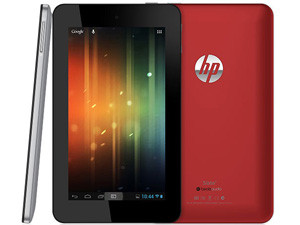
HP is pondering a move back into smartphones after its previous bid to launch a range of mobile devices using the Palm WebOS ecosystem fell flat.
The Internet is abuzz with news that HP will re-enter the smartphone market after its senior director of consumer PCs and tablets for Asia-Pacific, Yam Su Yin, reportedly told The Indian Express that HP is already working on a new device.
"The answer is yes but I cannot give a timetable. It would be silly if we say no. HP has to be in the game," she is quoted as saying. "Being late you have to create a different set of proposition[s]. There are still things that can be done. It's not late. When HP has a smartphone, it will give a differentiated experience."
HP's official comment is: "HP will expand to additional mobility categories and form factors where we believe we can offer differentiated value to our customers. We will bring smartphones to market but are not giving a timetable."
Last year, HP CEO Meg Whitman said it would "have to ultimately offer a smartphone because in many countries of the world that would be your first computing device". She did, however, also say HP would not debut a smartphone in 2013, and would instead first test the waters with a tablet.
Initial failure
In April 2010, the group spent $1.2 billion on buying money-losing Palm, betting it could resuscitate the struggling smartphone maker to compete with the likes of Apple and BlackBerry, at the time called Research In Motion. As part of the deal, HP bought WebOS.
WebOS was HP's bid to offer devices, such as smartphones, tablets and netbooks, with fully integrated hardware and software - a strategy that has proven extremely successful for Apple, but which many have failed to replicate. At the time, HP said it was embarking on a "new era of WebOS" and had aspirations to offer the best mobile experience available at the time. However, the devices failed to capture consumer attention.
After the TouchPad was on the market for just seven weeks, HP announced its plans to exit the WebOS hardware space and issued a declaration to retailers to start liquidating TouchPad inventories. Currently, HP's tablet offering is Android- and Windows 8-based.
When the company announced its transformation in August 2011, it said it was shutting down operations for WebOS devices and exploring strategic alternatives for WebOS software.
That December, HP said it was contributing the underlying WebOS code to the open source community. "HP plans to continue to be active in the development and support of WebOS. By combining the innovative WebOS platform with the development power of the open source community, there is the opportunity to significantly improve applications and Web services for the next generation of devices," it said.
In February this year, LG and HP said in a joint statement that LG had bought the WebOS operating system technology from HP, which it would use in its next-generation smart TVs.
Had to happen
Fuseware CEO Mike Wronski says it is inevitable that HP would enter the smartphone market. "PC sales are projected to decline by 7.8% in 2013, and all PC makers are feeling the pressure to innovate. The current growth market is in mobile devices, which manufacturers like HP are almost forced to enter or risk obsolescence."
The latest forecast by the International Data Corporation (IDC) suggests smartphone shipments will grow by 32.7% year-on-year in 2013, reaching 958.8 million units.
Wronski says HP has remained mum over the exact specifications of its smartphone device, but has hinted towards breaking new ground in terms of innovation. "Smartphone hardware has become fairly commoditised as most devices carry similar technical features. The only way HP can differentiate properly is through software and content services, but unfortunately this isn't something their brand is known for doing."
He adds that HP has a couple of options available, but that none of them are highly desirable. "They can either launch their own operating system, which would drain their cash flows and fragment their market further, or use an existing system and risk nullifying key differentiating factors."
Wronski says the market is already awash with commoditised smartphones with different breeds of Android. "HP seemingly needs to pull a rabbit out of a hat to really capture any solid share of the market."
Wronski says for HP to achieve this, it would have to pull out all the stops. "If HP goes the route of utilising an existing OS, such as Android, they would need to differentiate via content and app services. Unfortunately, HP is well known for pre-loading bloated software on its previous ranges of laptops that most consumers have found entirely unnecessary."
When it comes to market adoption, Wronski says he doesn't see any clear way that HP can gain traction, but remains optimistic that it could launch a device that changes the mobile status quo.
Share